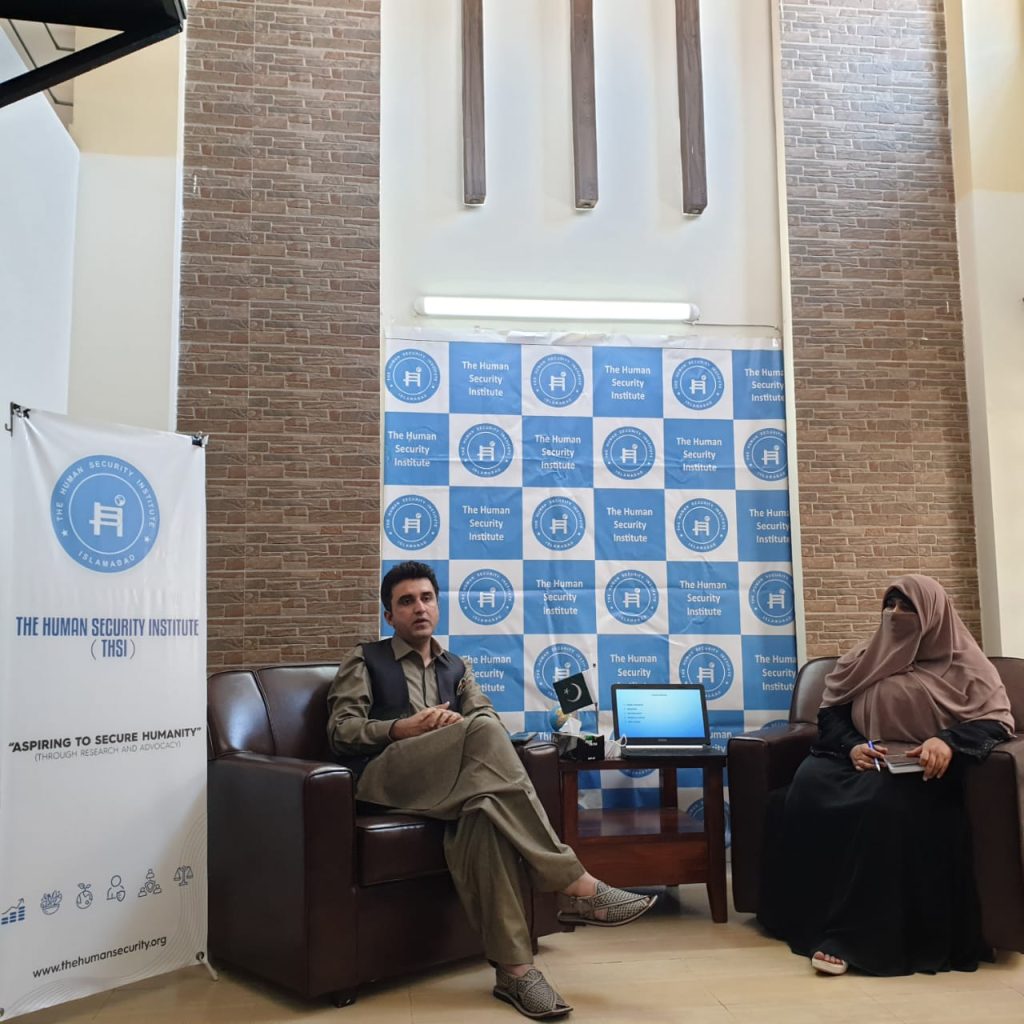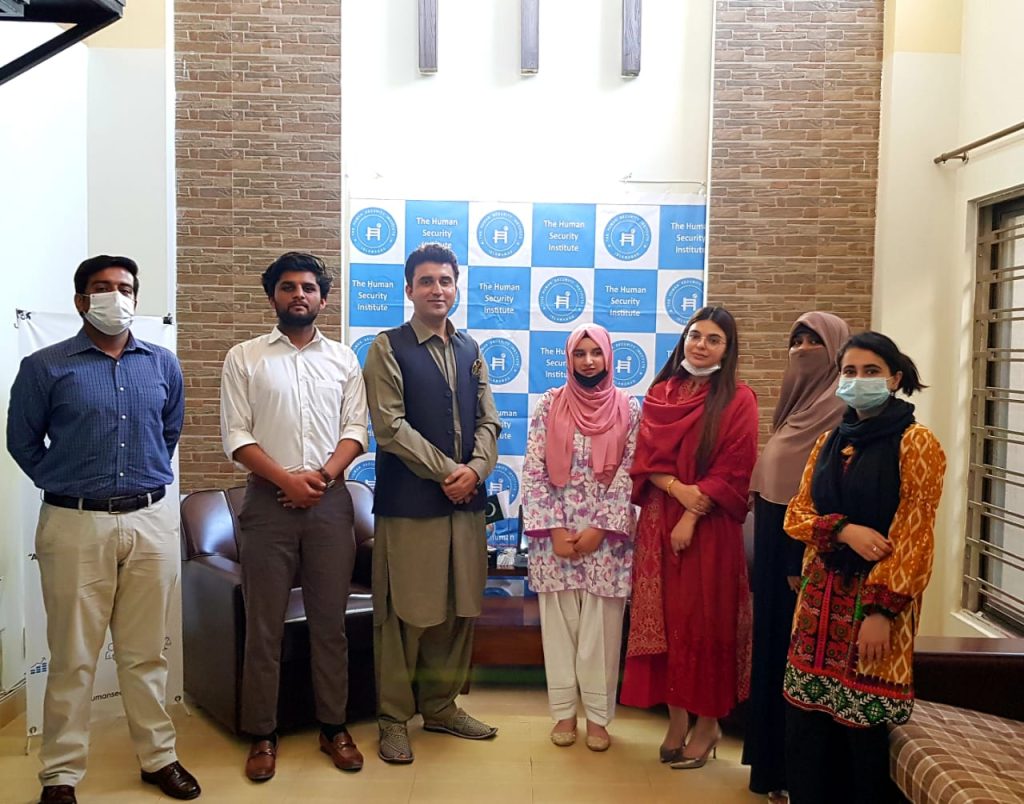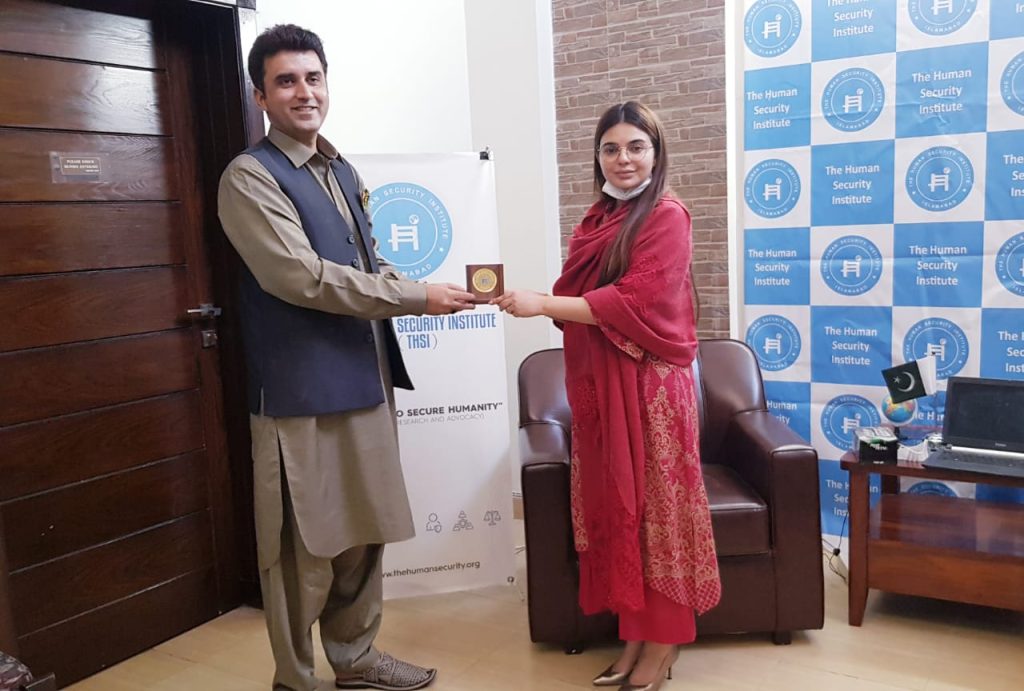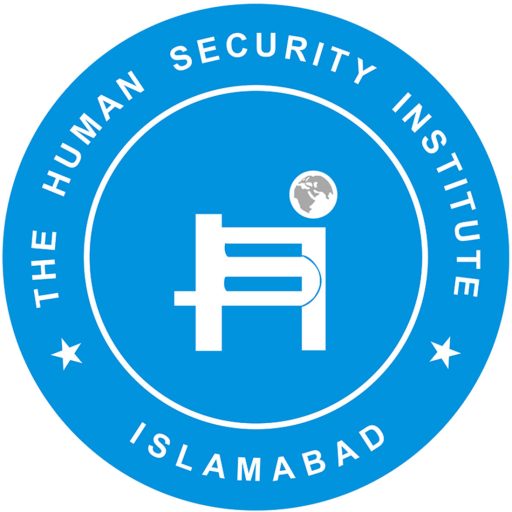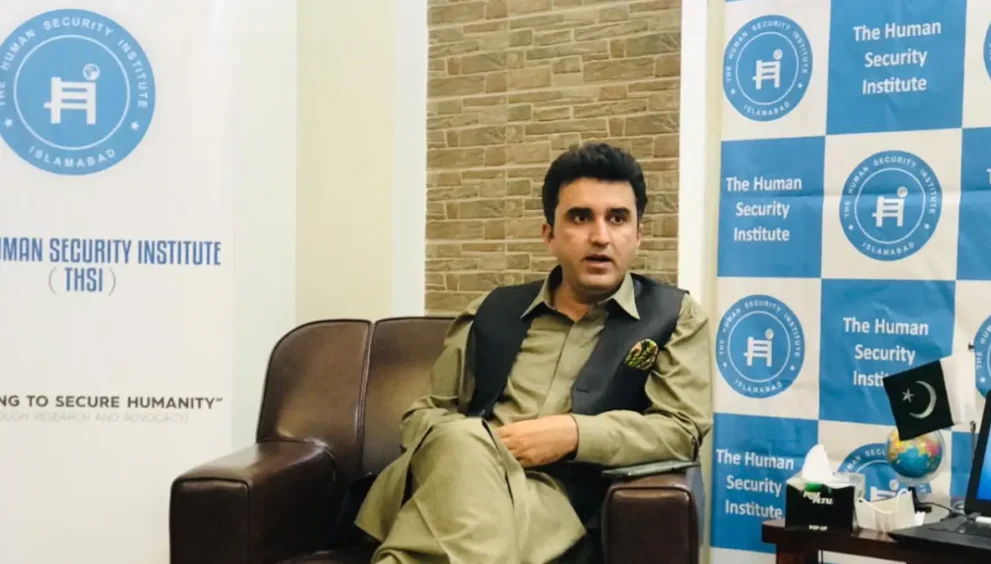The Human Security Institute
Minutes of 1st Lecture of Lecture Series on Dimensions of Human Security
Guest Speaker: Mr. Munawar Ali Mahar
Date: April 8, 2021
Time: 01:00 pm
- Introductory remarks
- Heartfelt gratitude to THSI for taking such a great initiative to express the individuals’ security aspect.
- The term ‘human security’ suffers from definitional vagueness.
- The United Nations Human Development Report 1994. According to the UNHDR 1994, ‘’human security is a child who did not die, a disease that did not spread, a job that was not cut, an ethnic tension that did not explode in violence, a dissident who was not silenced. Human security is not a concern with weapons-it is a concern with human life and dignity.’’ It further states, ‘’ It means, first, safety from such chronic threats as hunger, disease and repression. And second, it means protection from sudden and hurtful disruptions in the patterns of daily life-whether in homes, in jobs or in communities.
- In sum, defined as human security as the freedom from want, fear and indignity
- 7 Dimensions of Human Security
CHARACTERISTICS
- People-Centeredness
- Universality
- Interdependence
- Prevention-oriented
- Multi-sectorial
INTERRELATIONSHIP B/W HUMAN SECURITY AND STATE SECURITY
- Unit of focus is individual in Human Security
- In traditional security chief element to be secured is state but in human security it is individual
- Threat spectrum is very broad and diversified as compared to state security
- Actors play vital role in state security but in human security number of actors should be engaged.
HISTORICAL /PHILOSOPHICAL ROOTS
- Precede State and Territorial Security –People are the most important element
- Hunting and Gathering Society –Organic natural and old concern
- Classical Liberalism-Individual persons as its units of analysis/Public end, not the means
- Social Contract Cycle
- Islam- A Human Security Revolution
- Dr. Mahboob-ul-Haq
- Security of people, not just territory.
- Security of individuals, not just of nations.
- Security through sustainable development, not through arms.
- Security of all people everywhere-in their homes, in their jobs, in their streets, in their communities, in their environment.
INTERNATIONALISATION
PHASES
- Pre-Cold War
- WW-II
- Decolonisation
- Democratisation
- Cold War Iron Curtain On Human Security
- Arms race, interstate conflict
- Spectre of Nuclear Armageddon
- The Copenhagen School assumes that there is now a duality of security: state security and societal security.
Security: A New Framework for Analysis is a book by Barry Buzan, Ole Wæver and Jaap de Wilde. It is considered to be the leading text outlining the views of the Copenhagen School of Security Studies
- Dr. Mahoob ul Haq’s Call
- Post-Cold War
- Dissolution of Traditional Security Doctrine
- UNDP Report 1990-focus and thrust away from economic growth-centeredness to people-centeredness.
- UNDP Report 1994-Seminal importance, Institutionalisation and globalisation of HS
- Human Security Now Report 2003-Political, social, environmental, economic, military and cultural systems
- Post-COVID-19
INSTRUMENTALIZATION
- 17 sustainable development goals
LINKAGES WITH THE HUMAN-CENTRED APPROACHES
- Human Rights
- Human Development
- Democracy
COVID-19 AND HUMAN SECURITY
- Crisis of Human Security-human Insecurity Pandemic
- Mask vs Muskets
